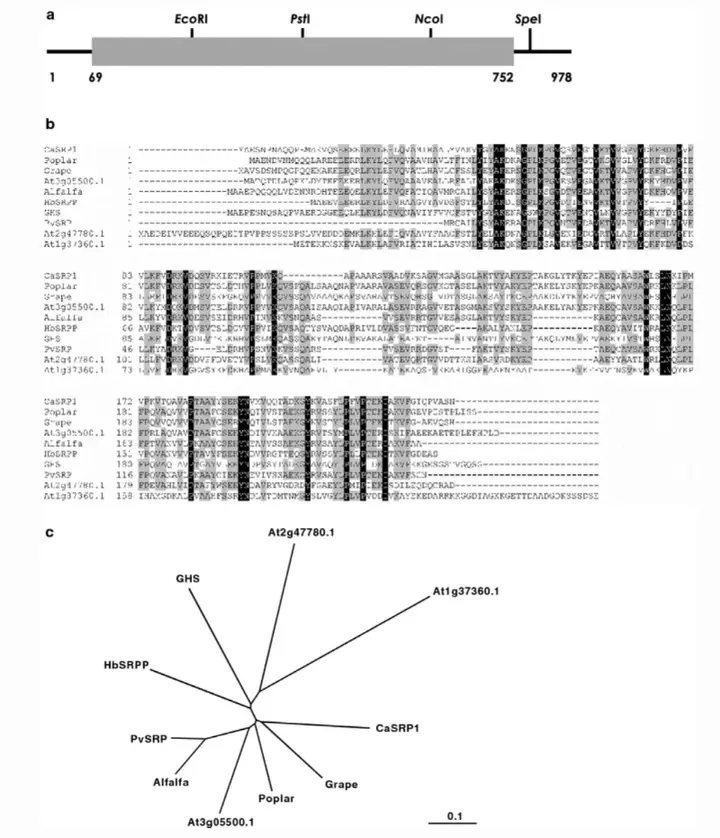Constitutive expression of CaSRP1, a hot pepper small rubber particle protein homolog, resulted in fast growth and improved drought tolerance in transgenic Arabidopsis plants
 Image credit: [Eunyu Kim]
Image credit: [Eunyu Kim]Abstract
Transient and long-term shortages of fresh water are major adverse environmental factors that cause dramatic reductions in crop production and distribution globally. In this study, we isolated a full-length CaSRP1 (Capsicum annuum stress-related protein 1) cDNA, which was rapidly induced by dehydration in hot pepper plants. The predicted CaSRP1 protein sequence exhibited significant amino acid identity to putative stress-related proteins and the small rubber particle protein (SRPP) found in rubber trees (Hevea brasiliensis). To study the cellular functions of CaSRP1, transgenic Arabidopsis plants (35S:CaSRP1) that constitutively expressed the CaSRP1 gene were constructed. Overexpression of CaSRP1 resulted in enhanced root and shoot growth and earlier bolting in the transgenic plants relative to wild-type plants. In addition, 35S:CaSRP1 overexpressors exhibited enhanced tolerance to drought stress as compared to the control plants. These results suggest that CaSRP1 plays dual functions as a positive factor for tissue growth and development and for drought-defensive responses. A possible cellular function of SRPP homologs in non-rubber-producing plants in relation to drought stress tolerance is discussed.